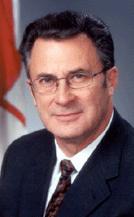Mr. Speaker, I have just a few words to say after listening to the hon. members opposite concerning promises.
It is a funny thing that the Reform and the Tories in this House do not talk about the promises they have made. Perhaps it is because if they talked about the promises they made in the budget they presented and in their policy statements, nobody would vote for them.
The hon. member a few moments ago was talking about infrastructure, about airports. They promised to pass all the airports in Canada to private enterprise. Imagine going into an airport anywhere in Canada and having a policy of the money bags, the multimillionaires in Canada owning all the airports. That is the policy of that opposition party.
Not only that, but they make a very big point of it in their promises. It is all there in black and white. The hon. member obviously has not read it lately. If he wants to hear the exact words, I can read it for him.
If someone picked up the policy papers of the Reform Party and the Tories, what would they see as far as infrastructure and highways are concerned? They would see that party is suggesting that the Trans-Labrador Highway be built by private individuals. Then in order to get their money back, toll gates would be placed on those highways. How else could they get their money back?
Imagine people driving along a highway, the Alaska highway or the new highway going up to Labrador, and having to pay for the highway and the bridges and then a profit over and above that for all time due to multi-multi-multimillionaires and the big banks in this country. That is the promise being made by the Reform Party of Canada and the Tories.
Even worse than that, let us get to the real promise they have made as far as ordinary Canadians are concerned. It involves medicare. Let us read the promise. They have been talking about promises of the government, this great administration. Now let us read from their budget.
It should not take me very long to find it. It is on page 24: "The public may in time agree that although access to a broad range of basic health care should be guaranteed to everyone, the original medicare model in which everyone received everything health care professionals wished to deliver is not only intolerably expensive, it is undesirable for other reasons". Awful. Just imagine.
What about that promise? It would mean one health care system for the rich in Canada and another health care system for the poor in Canada. They do not even hide it. They even put it in their policy book. The Tories have done the same thing.
I know the Speaker would rule me out of order if I used a prop. I am not supposed to do that. Anyway, it is called the taxpayers budget. It is the Reform Party's plan to balance the federal budget.
Let us understand this completely as far as the promises are concerned. Let us understand the Liberal promises versus the promises of the Tories and the Reform Party of Canada. It is no
wonder they are so low in the polls. It is no wonder the government remains so high in the polls.
Hon. members opposite keep referring to our great deficit problem. What country are they talking about? The recent analyses have not been done in Canada by the chambers of commerce or by any Canadian economists. Look at the great analyses on the economic performance of the Government of Canada in the past three years. What do they say?
The OECD is made up of 28 nations. Its head office in Paris, France. Its job is to analyse the economies of the countries of the world. What does the OECD say about the great G-7? Which country is it that leads the G-7? Is it Japan?

